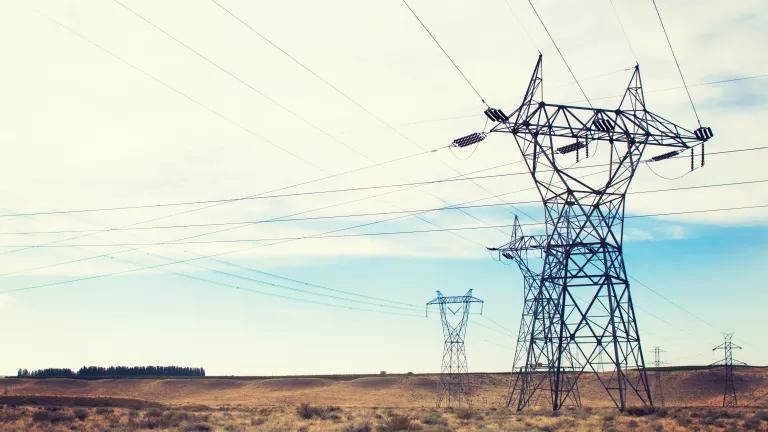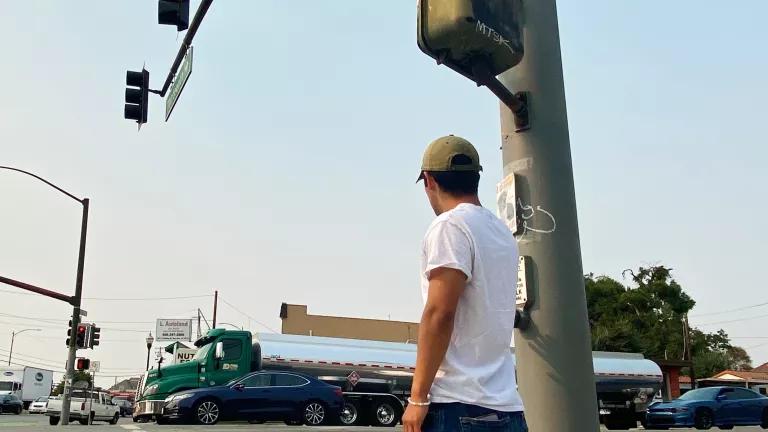At COP21, 13 Jurisdictions Go All-In to Create World's Largest Market for Zero-Emission Vehicles

Achieving climate stabilization goals necessitates flipping the switch to zero-emitting, electric-drive vehicles as soon as possible.
Today at the Paris Climate talks (COP21), leaders from 13 jurisdictions across North American and Europe announced commitments that all new passenger vehicles will use zero emission vehicle (ZEV) technologies no later than 2050. Most experts agree we must widely adopt these technologies, which include battery-electric, plug-in hybrid, and fuel cell vehicles, to cut carbon pollution globally from the transportation sector.
The groundswell of commitments show these regions believe it's possible - and necessary -- to go all-in on electric vehicles. It's also a powerful signal to the global automotive industry to 'go fast' with electric-drive vehicles and for the rest of the country, and the world, to look to ZEVs as a critical element in staving off the worst effects of climate change.
Growing from a handful to many
The transportation sector is among the fastest growing source of carbon pollution, contributing almost one-quarter of the global energy-related emissions, according to the United Nations. The unique alliance--which includes states such as Maryland, California and New York, and nation-states such as the United Kingdom and Germany--is paving the way for a glob al transition that could cut emissions by more than one billion tons per year by 2050 representing 40% of global vehicle emissions, according to a report by the International Council on Clean Transportation.
The thirteen jurisdictions together have a market size of more than ten million new passenger vehicles per year. If the Alliance achieves its goals, roughly 200 million ZEVs will hit the streets between now and 2050. The approach validates efforts from leaders such as Governors Jerry Brown of California, Dannel Malloy of Connecticut, and Kate Brown of Oregon who are spearheading their own climate movement with their peers, including working together to set a precedent for increasing electric vehicles. This movement will likely continue to grow as other jurisdictions join this groundswell.
The commitments also strongly reinforces the strategic direction that some automakers, notably BMW and Nissan, are adopting by making ZEVs a core part of their business model going forward, while also confirming the potential market for newer ZEV manufacturers like Tesla.
Scaling up. Big time.
Globally, car makers have produced and sold over one million ZEVs, up from demonstration scale numbers in 2007. The current scale-up has helped to rapidly drive down battery costs by 60%. Those costs are forecasted to go even lower as these commitments from this Alliance increase market size.
Charts courtesy of ICCT
Taking the high ground
As other jurisdictions look to potentially join the Alliance, it's also clear that - behind the targets - the current leaders in the ZEV Alliance are also taking action to protect their own jurisdictions, citizens and future citizens. Governor Kate Brown of Oregon stated, "The serious threats presented by global warming have been known for over three decades and future generations will rightly judge the morality and leadership of this generation not by the fact of climate change, but how we responded."
Maryland's Secretary of the Environment Ben Grumbles said, "Electric vehicles will help drive Maryland's environmental and economic progress. Cooperative partnerships such as this can help accelerate the adoption of these vehicles locally and globally, benefiting citizens, consumers, and ecosystems along the way."
The governments that are participants in the International ZEV Alliance include Germany, the Netherlands, Norway and the United Kingdom in Europe; California, Connecticut, Maryland, Massachusetts, New York, Oregon, Rhode Island and Vermont in the United States; and Québec in Canada. For more information on the agreement, visit the International ZEV Alliance website.

Photo by Margaret Smith, courtesy of NREL.




